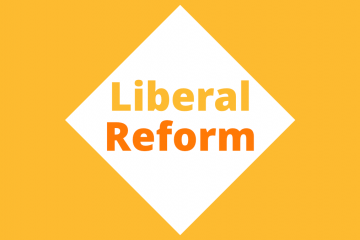Iglesias By Callum Robertson, @CRobertson_LD
Many will have seen the proroguing of parliament by the Queen on the advice of Boris Johnson, but what does this mean in the micro-environment of these circumstances and what is the wider socio-legal consequence?
Al Bāḩah Our constitution
Our constitution is almost unique in its haphazard make-up. It is a system that has evolved over a millennium and never had a defining revolutionary moment in the same way that most other western nation states have. For example, the French revolution, foundation of the state of Ireland and the USA, all came about as a result of so-called defining moments. The closest we have ever come to a defining moment was the Glorious Revolution, which, as one historian aptly puts it, is “the kind of revolution you are having when you’re not having a revolution”.
Because of the lack of a defining moment, our system built up a series of gentlemen’s agreements (conventions), which allowed the tweaking of process over time without actually underpinning them in primary legislation. This began to change under Blair when, in the Constitutional Reform Act 2005, the Rule of Law was referenced in the text of primary legislation.
The aforementioned system only works by the consent of those who exist within its parameters, so in an age of politics by decorum, it functioned effectively. However, when you condition in the socio-economic situation occurring in the UK in 2019, you find that a gentleman’s agreement cannot necessarily be a sustainable method of constitutional practice.
So, where next?
Firstly, we must tackle a technical definition of “proroguing”. This is a procedure where the Queen, on the advice of the Prime Minister, discontinues the parliamentary session. Readers should note the difference between this and dissolution, the latter being the Parliament being dissolved in preparation for a General Election. The act of prorogation falls within the remit of the royal prerogative but this is in practice, exercised by the Prime Minister through the Queen.
The act of prorogation does not impact existing legislative commitments such as the fixed term parliaments act, which sets out a process for elections. The fear of this leading us down the path of dictatorship, is consequently a poorly founded one.
What do the recent events mean? Essentially, that Members will be unable to scrutinise the government of the day through parliamentary methods (legislation, select committees, motions and the suchlike) during the period when parliament is not sitting. This should spark conversations about our current constitutional settlement.
This leaves us in a constitutionally fascinating situation, the request to prorogue only takes effect from the beginning of conference season, to the end of the 14th of October. For agitated parliamentarians, this provides ample time to pass legislation relating to revocation, a confirmatory vote, a deal or another option. For example, Letwin-Cooper was passed in four sitting parliamentary days.
Beyond Brexit
This move to prorogue parliament does not sit well with me. As someone who has historically been a republican but opposed a codified constitution, I must confess that the recent events do not reflect well upon this viewpoint.
It must be stated, that the Queen should not be “blamed” for refusing to ignore the Prime Minister; to do so would be to profoundly misunderstand the role of the monarch in our constitutional settlement. It would be therefore irresponsible to use the events of August 28th to further the cause of Republicanism.
However, it should raise questions about the powers invested in an individual. The vesting of these powers in the Prime Minister acting through the Sovereign only works if the individual is willing to abide by the gentleman’s agreement. In the circumstance, the misuse of the Royal Prerogative to prorogue, should call into question it’s very existence.
Concluding
The events of august 28th, coupled with the confusion of power leading to the judgement in Miller, together, make a compelling case for a prerogative act, to clearly curtail executive power in favour of the supremacy of parliament.


